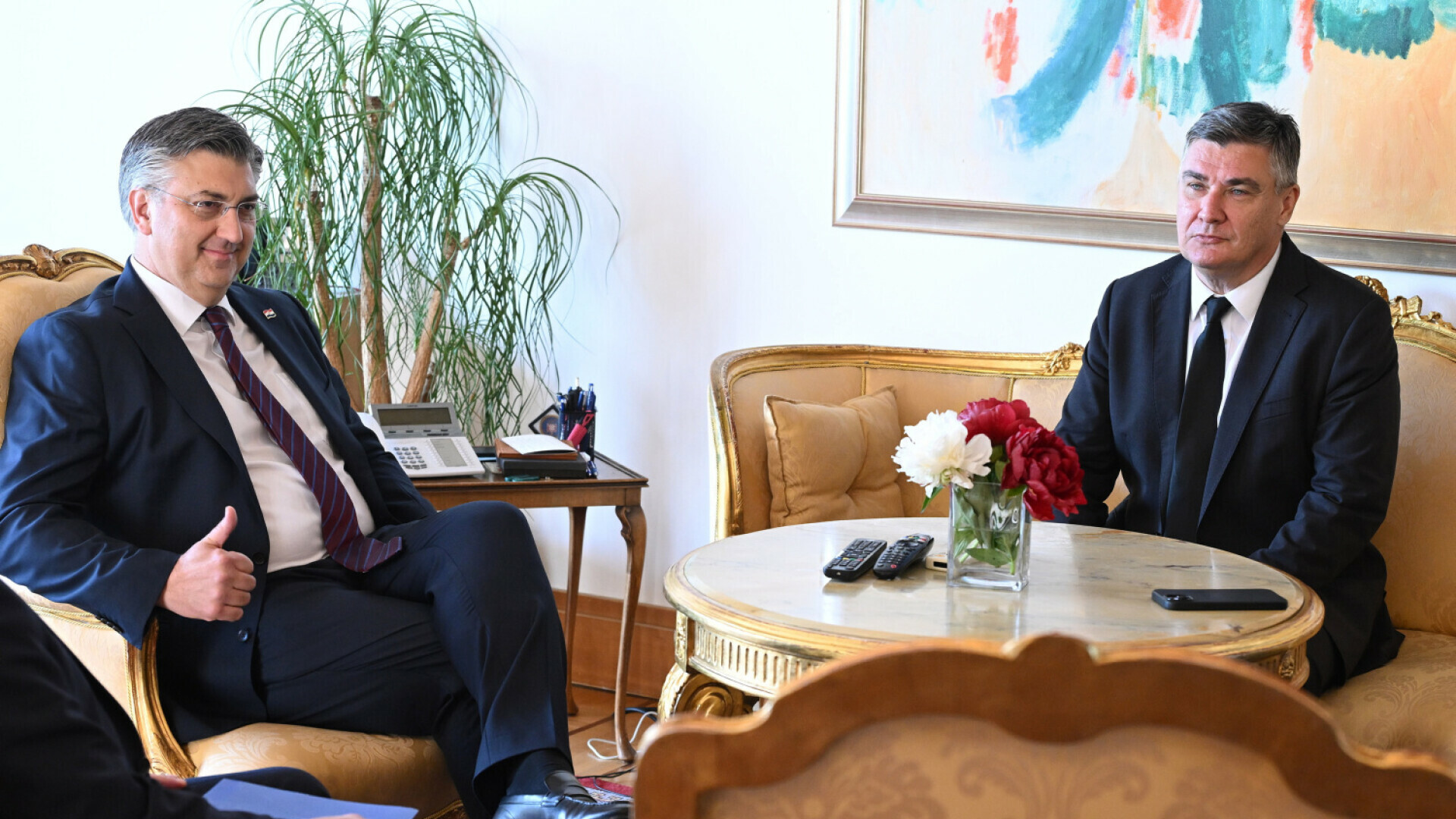Croatian Government Formation: A Coalition of Controversy
In a significant political development in Croatia, the reappointment of Andrej Plenković as the Prime Minister and his controversial decision to ally with a far-right party has stirred the political landscape.
Published May 11, 2024 - 00:05am

Image recovered from dnevnik.hr
The Croatian political arena is witnessing substantial transformations as President Zoran Milanović has entrusted Andrej Plenković with the mandate to form the new government. This decision follows the elections that reshaped the composition of the Croatian Parliament, where Plenković's HDZ, a center-right party, secured a majority by forming an alliance with the far-right Homeland Movement (DP). Although Plenković managed to present the signatures of 78 elected representatives, evidencing majority support, the path to his reappointment has been marked by three weeks of intense negotiations.
Amidst various political maneuvers, the coalition terms have revealed significant compromises, including the exclusion of the Serbian minority's representation from Plenković's forthcoming government, which has raised concerns about minority rights and nationalist policies. The Homeland Movement, by securing pivotal ministries such as Demography, Agriculture, and Economy, signifies its role as a kingmaker in Croatia's political sphere. Record indicates that the coalition agreement ensures no single party will dominate government sectors, with the DP set to endorse its policy directives within various departments.
The alliance with the DP has bred unease among opposition parties and citizens alike. Criticisms stem from DP's intentions to dismantle the Istanbul Convention on combating violence against women, along with its nationalist and anti-immigration stance.
While Croatia prepares for the initial session of the 11th Croatian Parliament, the coalition government's formation continues to draw attention. As Plenković steps into his new term, the domestic and international community closely observes how his government will navigate the challenges that lie ahead, particularly those concerning human rights and governance ethics.
As the new parliamentary term commences, the political balance within Croatia tips towards a center-right orientation, a shift driven by the outcome of the latest elections. With the Homeland Movement securing key ministerial portfolios, observers anticipate a possible redirection of policy priorities that could reshape the nation's social and economic landscape. The strategic distribution of ministries aims to maintain a balanced power structure while promoting the coalition's agenda through several governmental layers.
The pairing of HDZ and the Homeland Movement also suggests a potential recalibration of international relations, particularly within the European Union. Given the EU's focus on democratic principles and human rights standards, the government's commitment to such values shall be under inspection, especially since the Homeland Movement has previously expressed eurosceptic sentiments. The international community, therefore, awaits to see how the coalition balances national interests with obligations as an EU member state.
Despite the coalition's majority, public skepticism looms regarding the durability and cohesion of the government, considering the contrasting ideologies of the parties involved. The pressure is on Prime Minister Andrej Plenković to lead a government that not only stays unified but also addresses the core issues facing the country, including economic recovery post-pandemic, demographic challenges, and Croatia's continued path towards entering the Schengen Area and Eurozone.
Moreover, the exclusion of Serbian minority representation from the government may have implications for Croatia's adherence to the Copenhagen criteria, which requires the protection of minority rights as a condition for EU membership. The situation provides the European Union with a litmus test on enforcing its regulations on member states, ensuring that national politics align with broader EU principles and policies.
Plenković's administration faces additional scrutiny over the handling of domestic matters such as judicial reform and corruption, two pressing issues that have been persistent thorns in Croatia's progress towards greater integration with Western institutions. The European Commission has repeatedly addressed these topics in its reports on Croatia, emphasizing the need for significant improvements.
While the Plenković government pledges to pursue a progressive economic agenda, including digitalization and investment in sustainable energy, it is the populist and nationalist rhetoric from its coalition partner that may set the tone for internal disputes. How these ideological strains align with practical governance will be a matter closely watched both at home and abroad.
Finally, civil society organizations are mobilizing to protect the achievements made in human rights and social justice fields, wary that the changing political landscape could reverse progress. They promise to hold the government accountable, ensuring that pluralism and inclusive policies remain at the forefront of the national agenda. In conclusion, the formation of the new coalition government in Croatia presents a juncture filled with both opportunity and trepidation, enveloping the Adriatic nation's future in a cloak of cautious expectation.







